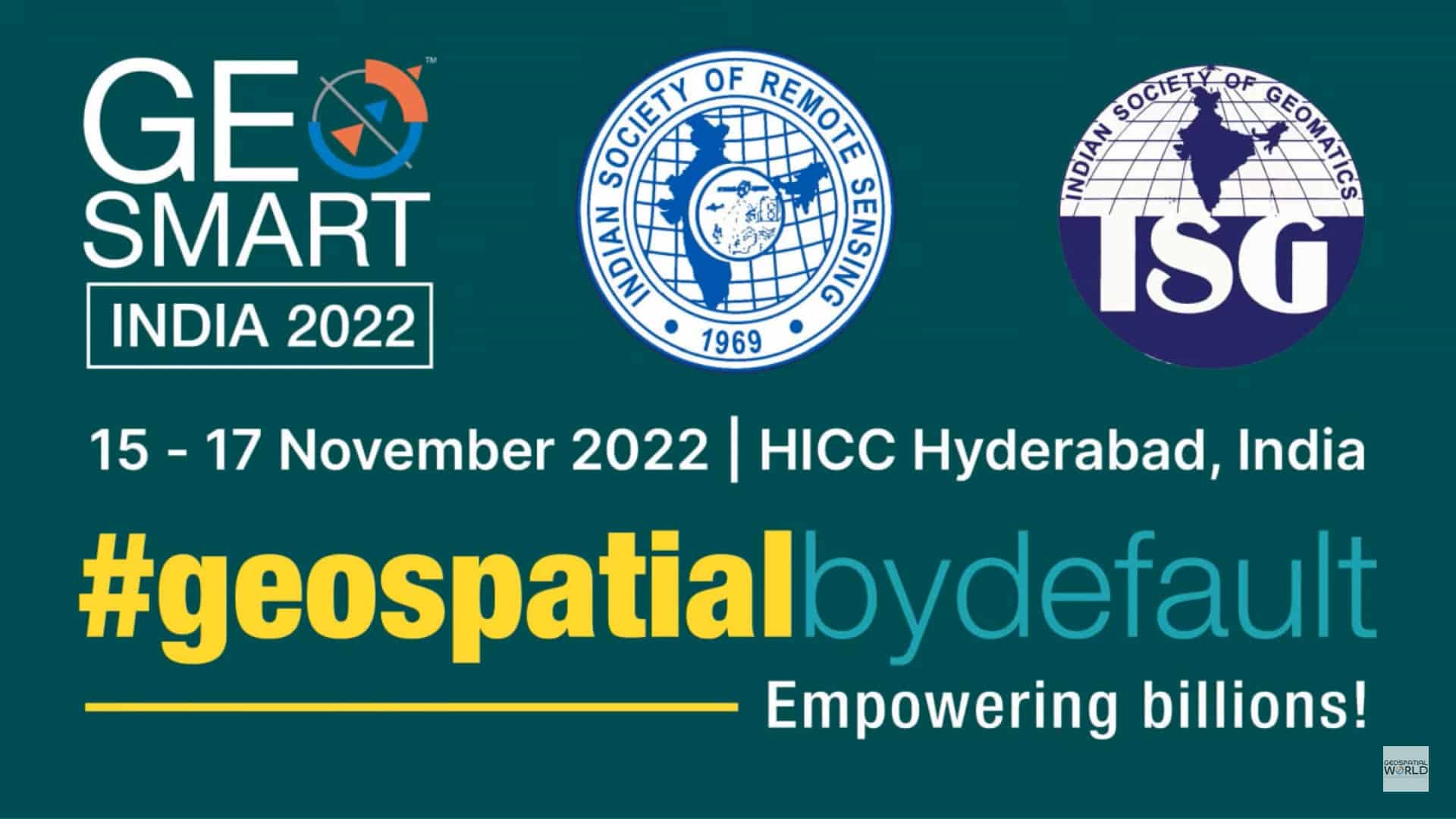The value of geospatial technology is increasing for people, the environment, and the economy, but is it reaching to everyone? What can be done to get the benefits of technology in the geospatial space so that it reaches to the billions?
The first plenary discussion at the GeoSmart India 2022 was based on the theme: #geospatialbydefault: empowering billions. And the panelists had an in-depth discussions on how we can make data and technology reachable for one and all.
“We can empower billions, when we understand the power of standards and collective problem solving. Around the world, I hear that there’s never been a better time to be in geospatial because data is easier than ever to collect, scale- cloud/edge, process-AI/ML and to interact through tableau like viz/AR/VR/Metaverse,” said Nadine Alameh, CEO and President, Open Geospatial Consortium.
“Even though we can say we are living in amazing time, still there are floods, wildfires, draught and other natural calamities faced by not just the developing countries but also the developed countries,” she added.
ALSO READ: GeoSmart India 2022 Kicks off at Hyderabad
Nadine points out that even with availability of data, there are four major hindrances: (Re)useable, findable, interoperable and accessible to people. “We need to lower the barriers for all to leverage spatial power, so that anyone can use the data. We need to invest more in our foundations and go back to basics, instead of just talking about data integration and data analysis.”
Megatrends Shaping the World
Krishna Bodanapu, Managing Director & CEO, Cyient said pointed out five megatrends shaping the future are:
- Sustainability, creating long-term and sustainable solutions for better tomorrow
- Industry 4.0 and Smart operations, a world powered by autonomous intelligence and decision making
- Space systems, the future of movement that breaks the barriers of space
- Intelligent and meta mobility, by powering automobiles by software and hardware led engineering
- Digital healthcare, to create healthier lifestyles, powered by smart technologies, said.
He further said, “Across these technologies, 80% of data has a spatial extension, which aids in location-enabled offerings. We are witnessing continuous innovations in technologies such as UAVs, sensors, satellites, big data contribute.”
“Climate change is a reality and we have to come to terms with the fact and then the next question arises What can be done? Once we identify the pain points, we have to use geospatial technology in terms of developing the climate resilient societies, said Dr. Prakash Chauhan, Director, National Remote Sensing Centre.
“Government of Telangana is the first state in the country to set up emerging technology wing, to harness the potential of different geospatial technologies like AI, Blockchain, Cloud, drones and robotics, IoT, Big Data, space tech and additive manufacturing,” said Dr. Ramadevi Lanka, Officer on Special Duty (ITE&C) Department, Govt of Telangana.
She said that they are working in 35+ projects with various partners from startups, industries, academia and foundations, which uses GIS data.
She mentioned that the Government of Telangana is working on large scale projects which may not reach billions but are reaching millions of the people of the state and empowering them.
ALSO READ: Indian Geospatial Economy to Hit INR 61,000 Crores By 2025









